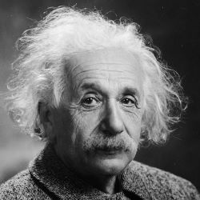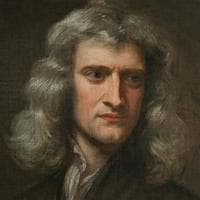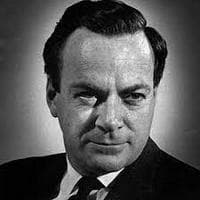Josiah Willard Gibbs type de personnalité MBTI
Personnalité
"Quel type de personnalité est Josiah Willard Gibbs? Josiah Willard Gibbs est un type de personnalité ISTJ dans MBTI, 1w2 - - 162 dans Enneagram, dans Big 5, LSE dans Socionics."
Although Gibbs's most important work was completely theoretical, he approached his work with the gravity and attention to detail that we would normally expect from someone with conscious Si. Even though Gibbs appears to have been an introvert, Si is a little harder to tease out than Te. Te is fairly evident in quotes such as these: Lawrence Henderson: "Just as Newton first conclusively showed that this is a world of masses, so Willard Gibbs first revealed it as a world of systems." Gibbs: "The laws of thermodynamics, as empirically determined, express the approximate and probable behavior of systems of a great number of particles, or, more precisely, they express the laws of mechanics for such systems as they appear to beings who have not the fineness of perception to enable them to appreciate quantities of the order of magnitude of those which relate to single particles, and who cannot repeat their experiments often enough to obtain any but the most probable results." The following excerpt from Elementary Principles of Statistical Mechanics can adequately demonstrate Si, regarding its need not to capriciously exclude important considerations, to build a firm foundation for conclusions, and its appeal to modesty: Gibbs: “[We] avoid the gravest difficulties when, giving up the attempt to frame hypotheses concerning the constitution of material bodies, we pursue statistical inquiries as a branch of rational mechanics. In the present state of science, it seems hardly possible to frame a dynamic theory of molecular action which shall embrace the phenomena of thermodynamics, of radiation, and of the electrical manifestations which accompany the union of atoms. Yet any theory is obviously inadequate which does not take account of all these phenomena. Even if we confine our attention to the phenomena distinctively thermodynamic, we do not escape difficulties in as simple a matter as the number of degrees of freedom of a diatomic gas. It is well known that while theory would assign to the gas six degrees of freedom per molecule, in our experiments on specific heat we cannot account for more than five. Certainly, one is building on an insecure foundation, who rests his work on hypotheses concerning the constitution of matter. Difficulties of this kind have deterred the author from attempting to explain the mysteries of nature, and have forced him to be contented with the more modest aim of deducing some of the more obvious propositions relating to the statistical branch of mechanics. Here, there can be no mistake in regard to the agreement of the hypotheses with the facts of nature, for nothing is assumed in that respect. The only error into which one can fall, is the want of agreement between the premises and the conclusions, and this, with care, one may hope, in the main, to avoid.” I initially thought that this quote, "One of the principal objects of theoretical research in my department of knowledge is to find the point of view from which the subject appears in the greatest simplicity," indicated the narrowing effect of the Ni/Se axis, but given that Gibbs appears to have carefully sifted through a lot of his research instead of leaping ahead through a singular, exalted perspective, this quote is more indicative of Si having reached a satisfactory simplicity by examining many perspectives carefully and discarding all but the most salient.
Biographie
Josiah Willard Gibbs (February 11, 1839 – April 28, 1903) was an American scientist who made significant theoretical contributions to physics, chemistry, and mathematics. His work on the applications of thermodynamics was instrumental in transforming physical chemistry into a rigorous inductive science. Together with James Clerk Maxwell and Ludwig Boltzmann, he created statistical mechanics (a term that he coined), explaining the laws of thermodynamics as consequences of the statistical properties of ensembles of the possible states of a physical system composed of many particles. Gibbs also worked on the application of Maxwell's equations to problems in physical optics. As a mathematician, he invented modern vector calculus (independently of the British scientist Oliver Heaviside, who carried out similar work during the same period).
Personnalité correlate

Albert Einstein

Isaac Newton

Neil deGrasse Tyson

Stephen Hawking

J. Robert Oppenheimer

Richard Feynman

Carl Sagan

Werner Heisenberg







